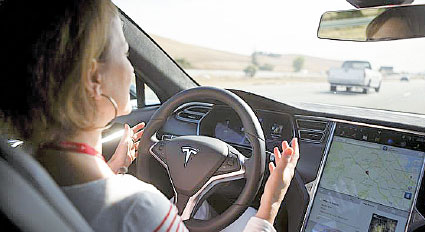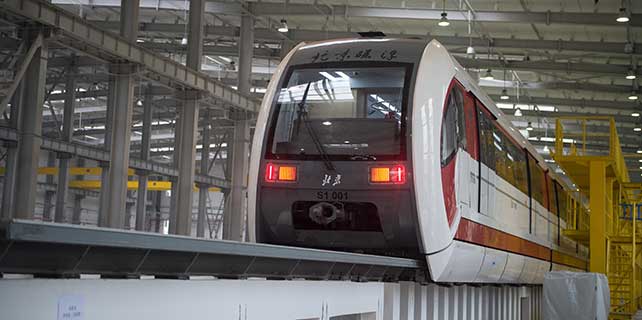Data-rich Tesla wrests lead in race for fully functional autonomous vehicle
There was, in hindsight, a clear element of risk to Tesla Motors Inc's decision to install autopilot hardware in every car coming off the production line since October 2014. It paid a price, with federal regulators probing the deadly crash of a Model S while in driver-assist mode and critics slamming Tesla for rolling the technology out too soon.
But there was also a reward. The company has collected more than 1.3 billion miles of data from autopilot-equipped vehicles operating under diverse road and weather conditions around the world.
In the frantic race to roll out the first fully functional autonomous vehicle, that kind of mass, real-world intelligence can be invaluable. In that way, for now, the electric-car maker has a leg up on competitors including Google, General Motors Co and Uber Technologies Inc.
"There's no question that Tesla has an advantage," said Nidhi Kalra, a senior information scientist at the Rand Corporation. "They can learn from a wider range of experiences and at a much faster rate than a company that is testing with trained drivers and employees behind the wheel."
The autonomous autos Google developed have covered 2 million real-world miles - with employees on board - since 2009, according to the company. Parent Alphabet Inc last week spun the self-driving project into a business called Waymo.
Uber, which has been piloting self-driving rideshare vehicles in Pittsburgh, recently deployed a fleet in San Francisco in its partnership with Volvo Cars. Each SUV is staffed with two employees, one ready to grab the wheel and the other on the lookout for pedestrians.
Uber made the move without approval from the California Department of Motor Vehicles and state prosecutors have threatened to seek a court order to force the company to stop. An Uber executive said it's acting "just like Tesla."
As for GM, it'll be putting its flotilla on the streets in Michigan, now that Governor Rick Snyder has signed a law allowing public-road testing of cars without steering wheels, gas or brake pedals - or any need for human control. But GM engineers will be in the front seats, as they are in test-trips that have been taking place in Arizona and California. Ford Motor Co has been doing its controlled runs on Michigan roads since 2015, including when it's snowing.
The fatal accident occurred in May when a man drove his 2015 Model S under the trailer of an 18-wheeler on a Florida highway. Neither the driver nor autopilot noticed the white side of the tractor-trailer against a brightly lit sky, so the brake wasn't applied, according to the company.
The National Highway Traffic Safety Administration is investigating.
Tesla CEO Elon Musk said in October that the upcoming Model 3, due out in late 2017, as well as all Teslas now being made at the company's Fremont, California, factory, will ship with an improved hardware suite that will enable total self-driving.
While he's said he wants to demonstrate an autonomous cross-country drive within a year, other automakers have generally ruled out total self-driving capability until sometime after 2020.
|
A test driver demonstrates autopilot features in a Tesla Model S electric car in California, the US, in October last year. Reuters |
(China Daily USA 12/26/2016 page13)










